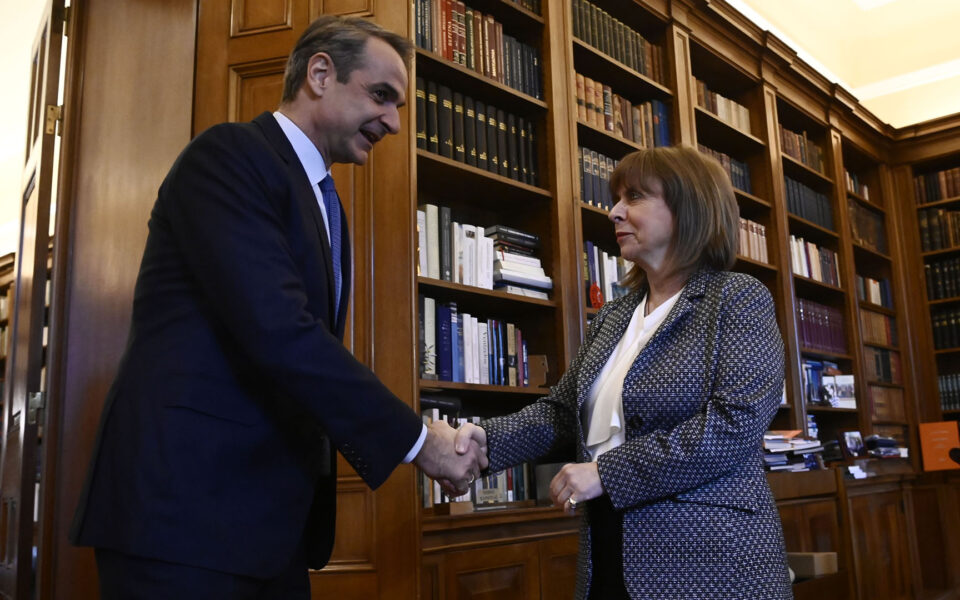Next milestone, selecting the president

The European elections had messages for everyone. All political leaders state that they have received them and will take the actions they deem necessary.
For ruling New Democracy, the first reaction will take the form of changes in the cabinet. It would be good to utilize new faces as well, and of course to replace some old ones who have been tarnished.
At the same time, while everyone is talking about the next electoral milestone being the national elections set for 2027, at an institutional level, there is another milestone which will come much earlier, in January 2025. It concerns the election of the president of the Republic.
Katerina Sakellaropoulou is the first woman to hold the highest office in the country and over the last four and a half years has left her mark on public life.
Will Prime Minister Kyriakos Mitsotakis nominate the incumbent for a second term, or will he opt for a different choice, feeling this gives him an opportunity to advance a specific political strategy?
If he tries to use the selection of the president to highlight a certain ideological shift to broaden the appeal of the governing party, there are figures whose presence would serve this goal; among them former prime ministers. Some of the latter would be ready to accept, others not.
Another possibility would be a current or former top official of another party with extensive experience and legacy. All options will be carefully weighed.
Although there are currently no indications of the prime minister’s intentions on this topic, he may be considering his options, given the need to react to the “message” the electorate sent in the recent European elections.
Naturally, attention in the coming days will be focusing on who will be the new ministers. However, Mitsotakis’ decision regarding the presidency will be the next major move, with its own special weight and increased symbolism.
Although the election of the president has been disconnected from the parliamentary processes, in the sense that it is no longer required to secure three fifths of the votes, it remains a deep political choice with self-evident ideological characteristics, which go along with the necessity to choose an individual who will serve the priorities of national unity and social cohesion.
In any case, after the recent decline in New Democracy’s electoral percentages – the prime minister himself stated that the 41% his party secured in the last national elections “no longer exists” – the decision of who the president will be takes on special political significance, whether the prime minister opts for the re-election of Sakellaropoulou or chooses another person.





